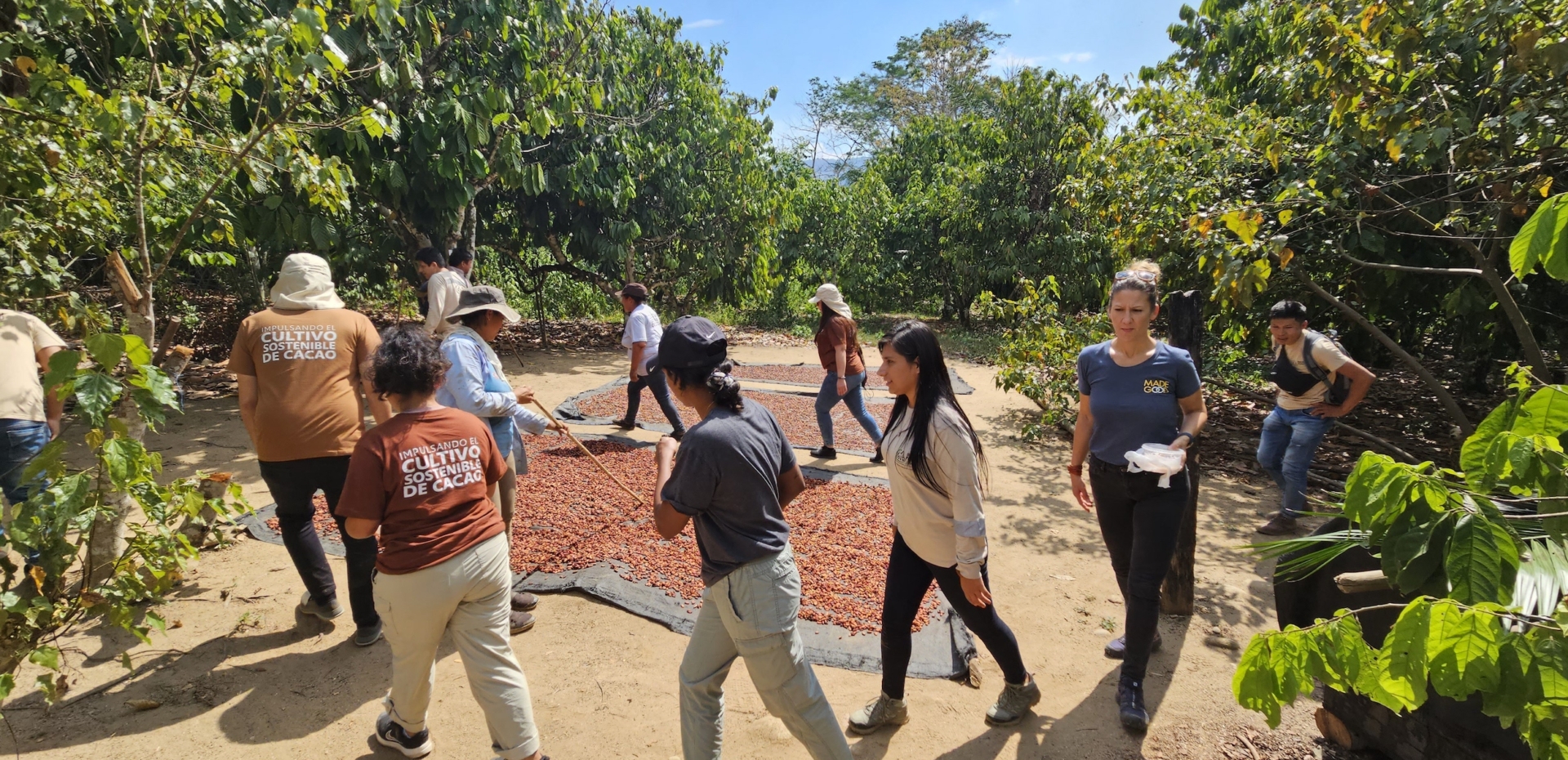New Climate Justice Case Studies Highlight Inclusive Strategies
April 10, 2024
B Corps Adopt a Collaborative Approach to Center Justice in Climate Action
The path to lasting climate action will require businesses to play a significant role and to center climate justice in their practices and partnerships. As companies that are pursuing a more inclusive and regenerative economy, Certified B Corporations can move the needle on climate justice and create a path forward for other businesses — from small firms to global corporations.
A new set of climate justice case studies from B Lab U.S. & Canada and B Corp Measure Meant builds on initial information shared in 2023. Leaders from three B Corps share how they are making changes — in their supply chains, products, and more — to center the needs and perspectives of people and communities most affected by climate change. Their actions include evaluating corporate spending, measuring supplier emissions, and supporting the transition to regenerative farming.
“We know that as urgency for climate action increases, it is essential to center our climate action efforts in justice and equity, and to ensure that our actions benefit the people and communities being affected first and worst by climate change,” said Kylie Nealis, Senior Program Manager for Climate Justice at B Lab U.S. & Canada. “These new case studies highlight climate justice learnings and themes at three B Corps, and we hope they inspire new lessons and actions at other companies.”
The new case studies feature B Corps from varied industries, sizes, and regions with operations that stretch around the globe:
- Gallant International, a small apparel company based in Mission Viejo, California, that sources cotton from farmers in India.
- Riverside Natural Foods, a 600-employee natural and organic food seller with headquarters in Ontario, Canada, that partners with farmers in Canada and Peru.
- Seventh Generation, a 100-employee sustainable home care company based in Burlington, Vermont, that prioritizes impact and advocacy as core values.
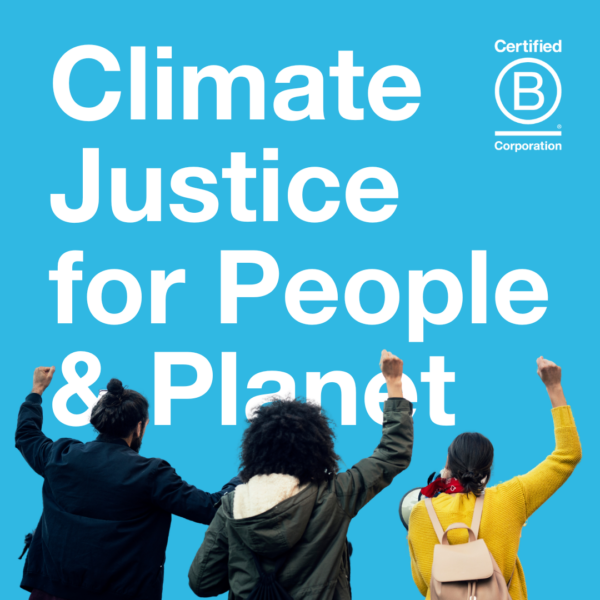
Business Examples to Advance Climate Justice
Certified B Corporations are incorporating justice in their climate action with services and products designed for positive social and environmental impact. This set of B Corp climate justice case studies produced by B Lab U.S. & Canada and B Corp Measure Meant studies highlights examples and concepts to inspire other businesses.
Gallant International Builds on Farmer-Centric Approach and Sustainable Value Chains
Gallant International is built on a foundation of support and connection with farmers. The B Corp ensures raw materials are grown sustainably and processed in factories that support fair trade standards and safe working conditions — two areas of concern in the apparel industry. Founder Vikrant Giri notes, “As the climate crisis continues to evolve, we want to ensure that the farmers are well-supported.”
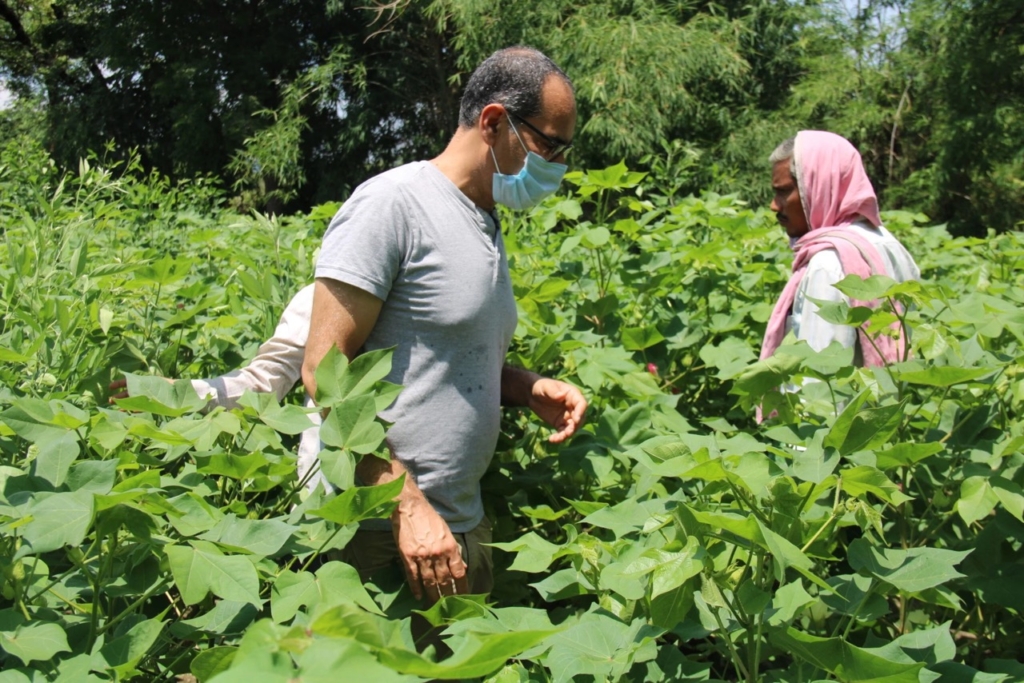
Vikrant Giri of Gallant International visits a regeneratively farmed cotton field.
Examples of the company’s climate justice efforts include:
- Gallant’s theory of change lies in building relationships with farmers and supporting practices that align with Regenerative Organic Certification. In 2021, Gallant partnered with an organic cotton co-op to transition over 700 farms in India to regenerative organic cotton. Focusing on the Regenerative Organic Certification framework helps ensure workers remain at the center of operational changes.
- Gallant sees farmers as the root of the value chain from which social impact can grow. Farmers’ ability to support themselves is central to their ability to grow food in an environmentally responsible way.
- The B Corp is working to shorten its value chain — the processes and people involved in production, delivery, and service — as much as possible to ensure farmers benefit from their transactions. They are working toward full traceability to eliminate unnecessary markups and provide transparency to producers and consumers. To accomplish this traceability, Gallant is investing its energy into gathering value chain data.
Riverside Natural Foods Takes a Collaborative Approach to Climate Justice
Riverside Natural Foods has established innovative partnerships to support its climate justice efforts. On a structural level, Riverside prefers partnerships that include a vendor partner and a nonprofit. Each plays an essential role in ensuring projects have the intended outcomes. A project’s environmental benefits must also serve workers, their families, and communities in Riverside’s value chain. Taylor Stanley, Riverside’s Corporate Impact Strategy Manager, says Riverside leads with “the capacity-building mindset for how we want to support the longevity of the project and empower the local community, and then we’re there to support however we can.”
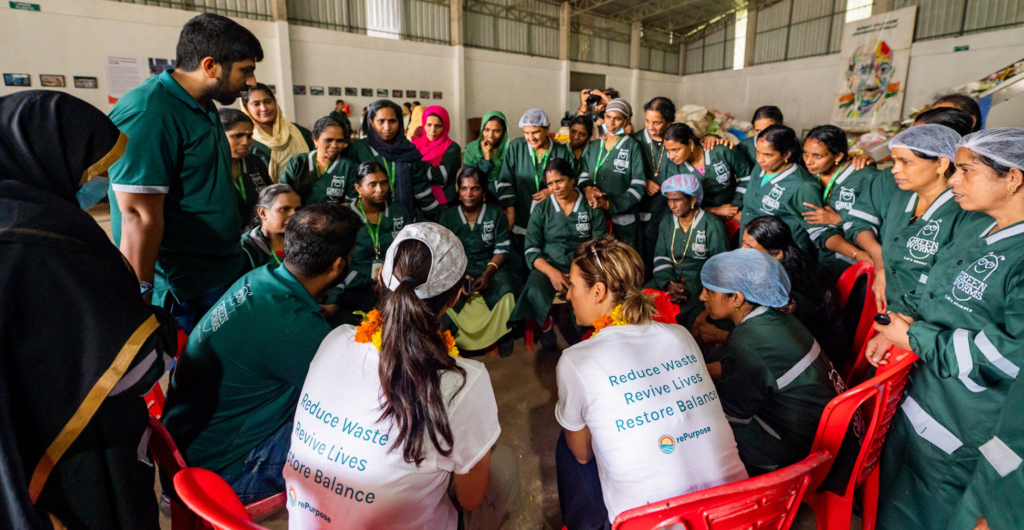
Participants in rePurpose Global’s Plastic Reality Project discuss their work to reduce plastic pollution.
Examples of the company’s climate justice efforts include:
- A partnership called the Nuwa Muun project includes Riverside’s chocolate vendor, the University of Lima, and 25 female farmers in Peru. The project supports farmers as they try new sustainable practices and measure how they affect yields and carbon emissions. This allows farmers to guide their work as they adapt to climate change. It also helps Riverside and its vendor partner gather primary data to calculate Scope 3 emissions and serves as a test of the university’s cacao life cycle analysis tool.
- As part of a pilot project with the nonprofit Canadian Organic Growers and longtime competitor Nature’s Path, Riverside is supporting the growth of Canada’s Certified Regenerative Organic oat supply. Spurred by a devastating drought in 2021, the project aims to help build a more resilient oat value chain. It also provides a community for farmers to share their knowledge.
- Riverside is working with rePurpose Global to account for packaging waste. This partnership allows Riverside to fund the development of formal waste supply chains in regions that need it most in exchange for purchasing plastic credits. Supporting the development of a formal waste sector in India and Indonesia creates reliable income and more stringent safety standards for workers in what is historically a largely unregulated sector.
Seventh Generation Employs Impact and Influence for Collective Climate Action
Seventh Generation views its climate justice work through two frames: impact and influence. Impact work covers company operations and the value chain. Influence work involves policy advocacy and collective action. Kate Ogden, Head of Advocacy and Movement Building at Seventh Generation, says the company’s approach to climate justice involves “understanding the climate crisis as both the product of and also a multiplier of systems of inequity.”
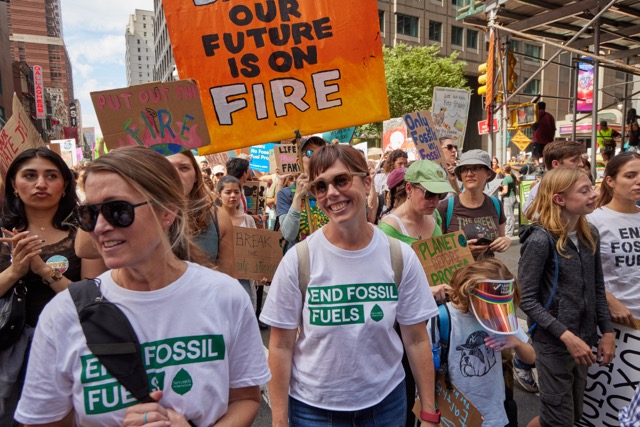
Ashley Orgain, left, Seventh Generation’s Chief Impact Officer, and Alison Whritenour, center, Seventh Generation CEO, take part in the March to End Fossil Fuels in September 2023.
Examples of the company’s climate justice efforts include:
- Seventh Generation conducted an assessment in 2021 to uncover the climate impact of each dollar the company spent. With help from partners like Clean Creatives, Seventh Generation assessed its spending on categories including marketing, insurance, and banking to evaluate whether the company was indirectly supporting fossil fuel companies.
- To expand what it can accomplish as a for-profit company, Seventh Generation created a foundation in 2014. Now, to maximize meaningful climate justice impact, the foundation is transitioning to fund only Indigenous-led organizations working on the climate crisis. As Ogden says, “We know that Indigenous communities are currently safeguarding 80% of the biodiversity that we have left,” and those communities face disproportionate effects of climate change.
- A partner-led advocacy model involves listening to the needs of other organizations and supporting them accordingly. In some cases, Seventh Generation uses its voice as a business, such as by supporting the NY Renews Coalition in passing the Climate Leadership and Community Protection Act in New York. Seventh Generation is also doing similar advocacy in its home state of Vermont through partnerships with Vermont Businesses for Social Responsibility and the #ActOnClimateVT coalition.
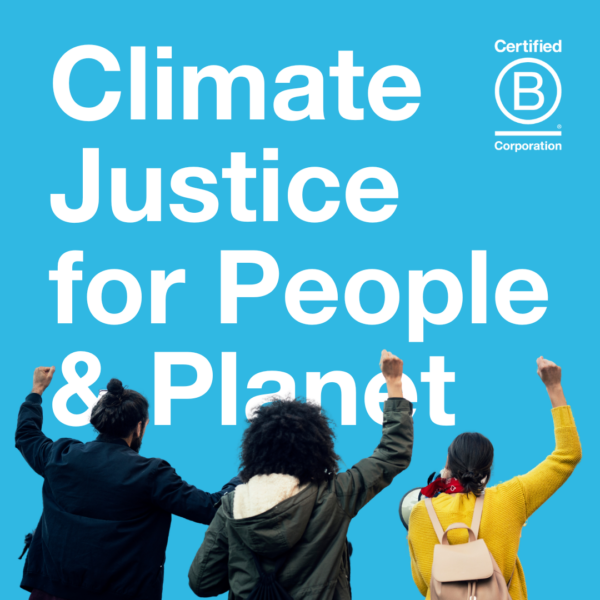
Business Examples to Advance Climate Justice
Certified B Corporations are incorporating justice in their climate action with services and products designed for positive social and environmental impact. This set of B Corp climate justice case studies produced by B Lab U.S. & Canada and B Corp Measure Meant studies highlights examples and concepts to inspire other businesses.
-
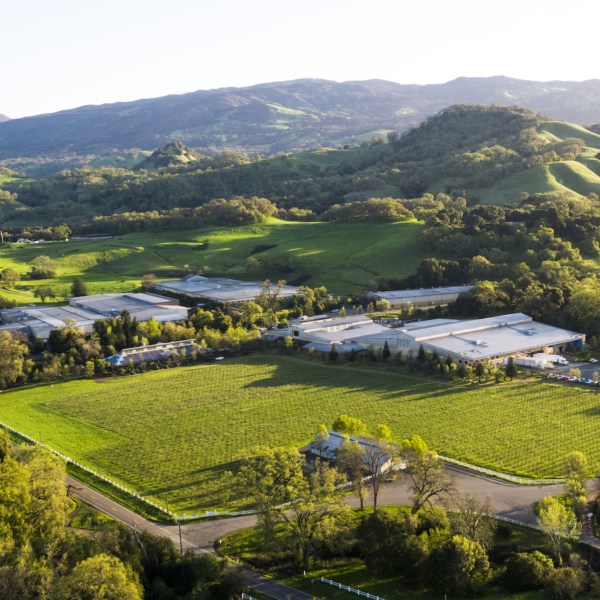
-
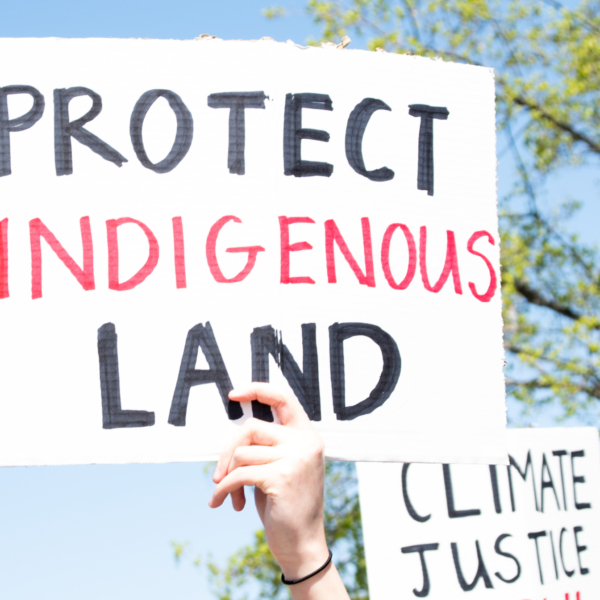
Environmental Justice
Partnerships and Tools for Business Climate Justice and Reconciliation
Read More -
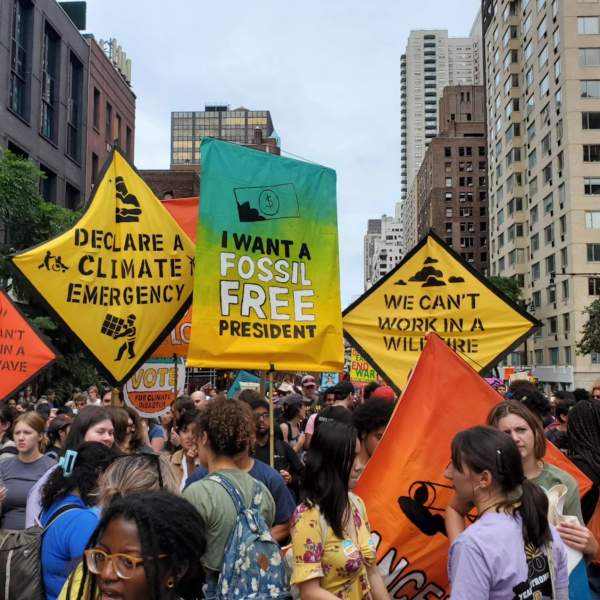
-
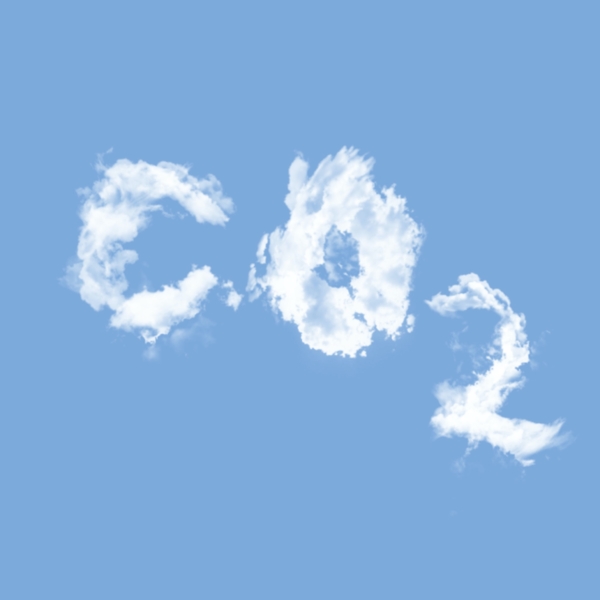
Sign Up for our B The Change Newsletter
Read stories on the B Corp Movement and people using business as a force for good. The B The Change Newsletter is sent weekly.
